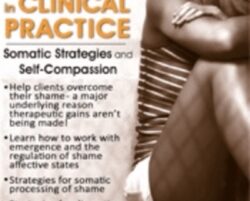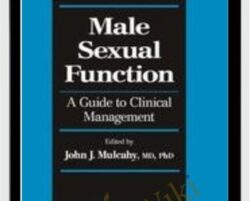Help clients overcome their shame – a major underlying reason therapeutic gains aren’t being made!Learn how to work with emergence and the regulation of shame affective statesStrategies for somatic processing of shameStrategies for disrupting shame identity and strengthening compassion capacityHow often do you and your clients come to an impasse in the therapeutic process? Change appears stalled and your clients’ progress is limited – and for most of us in clinical practice, navigating this impasse is challenging.In this workshop you will learn how to identify and work with shame to restore the therapeutic alliance and re-engage the client in their process of change. Shame is not only a highly toxic affective state but also an embodied experience. In a constant state of vigilance against additional exposure to shaming events, the client is unable to access internal healing resources and is often reluctant to engage in therapy.If you miss the tell-tale signs of shame, you not only rupture the therapeutic alliance – you’ll hinder any progress toward healing. Like me at one time in my practice, and like many others in our field, you have difficulty identifying shame, as the experience is often disguised as avoidance, rage, anger or sadness.Leave the seminar armed with superior skills of seeing when shame is present, how it is adversely impacting the therapeutic alliance, and why progress has stalled – and give the client strategies to replace shame with self-compassion.Identify developmental and trauma perspectives of shame.Facilitate shame and self-compassion affective and embodied states.Experience shame activation (self and client’s) within the therapeutic relationship and identify alliance ruptures.Apply strategies to restore the interpersonal connection when shame emerges.Explore the therapeutic relationship for self-compassion expressions.Apply strategies with couples and groups.Get Treating Shame in Clinical Practice: Somatic Strategies and Self-Compassion of author Matthew J. Modrcin only price 79$The Roots of ShameInterpersonal originsDevelopmental perspectiveTrauma perspectiveAffective-somatic perspectiveThe Therapist Shame ExperienceHow clinical models can shameBarrier to creativity and relational presenceReleasing the shame responseShame and the Distortion of SelfShame-based identityAdaptive qualitiesDefense against connectionWhen Shame is Activated – Interventions for Working With:Affective processingSomatic processingObserving and entering the shame activationTherapeutic StrategiesIncreasing tolerance of shame statesHolding the emergence of affectAmplification of positive affects for connectionCompassion modelingManaging enactment momentsTransparency and self-disclosureEngaging and Sustaining Self-CompassionDefinitionsAffective statesSomatic statesNarratives of self-compassionSet-backs and restorationsAdditional Clinical ContextsCouples therapyGroup therapyGet Treating Shame in Clinical Practice: Somatic Strategies and Self-Compassion of author Matthew J. Modrcin only price 79$Tag: Treating Shame in Clinical Practice: Somatic Strategies and Self-Compassion – Matthew J. Modrcin Review. Treating Shame in Clinical Practice: Somatic Strategies and Self-Compassion – Matthew J. Modrcin download. Treating Shame in Clinical Practice: Somatic Strategies and Self-Compassion – Matthew J. Modrcin discount.
Treating Shame in Clinical Practice: Somatic Strategies and Self-Compassion – Matthew J. Modrcin
₹12,450.00






